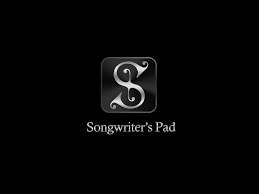In the realm of music composition, lyric writing stands as both an art and a craft. Crafting lyrics that resonate with listeners involves a deep understanding of emotion, storytelling, and rhythm. As the music industry evolves, songwriters and composers are turning to innovative tools to enhance their creative process. One such tool gaining prominence is the lyric generator.
A lyric generator is an advanced software application designed to assist songwriters in creating original lyrics. By leveraging artificial intelligence and natural language processing, these tools offer a unique approach to lyric composition, providing fresh inspiration and new perspectives. This article explores the benefits and features of lyric generators and how they can transform the songwriting process.
1. Enhancing Creativity
One of the primary advantages of using a lyric generator is its ability to stimulate creativity. Songwriters often encounter creative blocks, where generating new ideas becomes challenging. A lyric generator can offer a starting point by suggesting phrases, themes, or even complete verses. This external input can break through mental barriers, allowing songwriters to build upon the generated content and infuse their personal touch.
2. Streamlining the Writing Process
Time efficiency is crucial in songwriting, especially for professionals working on tight deadlines. Lyric generators can expedite the writing process by providing quick access to a wide range of lyrical ideas. These tools analyze vast databases of words and phrases to produce relevant and contextually appropriate suggestions. By streamlining the initial stages of lyric creation, songwriters can focus more on refining and perfecting their work.
3. Exploring Diverse Themes
Songwriters often seek to explore new themes or genres to keep their work fresh and engaging. Lyric generators offer a valuable resource for exploring diverse themes that might not have been previously considered. Whether aiming for romantic ballads, motivational anthems, or introspective pieces, these tools can generate lyrics that align with various moods and styles. This flexibility encourages songwriters to experiment with different lyrical approaches and broaden their creative horizons.
4. Personalization and Customization
Modern lyric generators are designed with personalization in mind. Users can input specific parameters such as mood, genre, or subject matter, allowing the tool to generate lyrics tailored to their preferences. This customization ensures that the output is relevant and aligns with the songwriter’s vision. Additionally, many lyric generators allow for iterative refinement, enabling users to adjust and modify suggestions until they achieve the desired result.
5. Learning and Development
For aspiring songwriters, lyric generators serve as a valuable educational resource. By examining the generated lyrics, users can gain insights into effective lyric writing techniques and structures. This learning process helps in understanding how different elements such as rhyme schemes, meter, and thematic development contribute to successful songwriting. As users interact with the tool, they can gradually improve their own lyric-writing skills.
6. Collaborative Opportunities
In collaborative songwriting environments, lyric generators can facilitate the creative process by providing a common starting point. Teams of songwriters can use the tool to generate initial ideas and then build upon them collectively. This collaborative approach can lead to innovative and unique compositions that leverage the strengths and perspectives of multiple contributors.
Conclusion
lyric generator represent a significant advancement in the songwriting process, offering a blend of creativity, efficiency, and customization. By leveraging these tools, songwriters can overcome creative blocks, explore new themes, and streamline their writing efforts. As technology continues to evolve, lyric generators are poised to become an indispensable resource for both seasoned professionals and emerging talent in the music industry. Embracing this modern tool can lead to more dynamic and diverse lyrical content, ultimately enriching the musical landscape.


